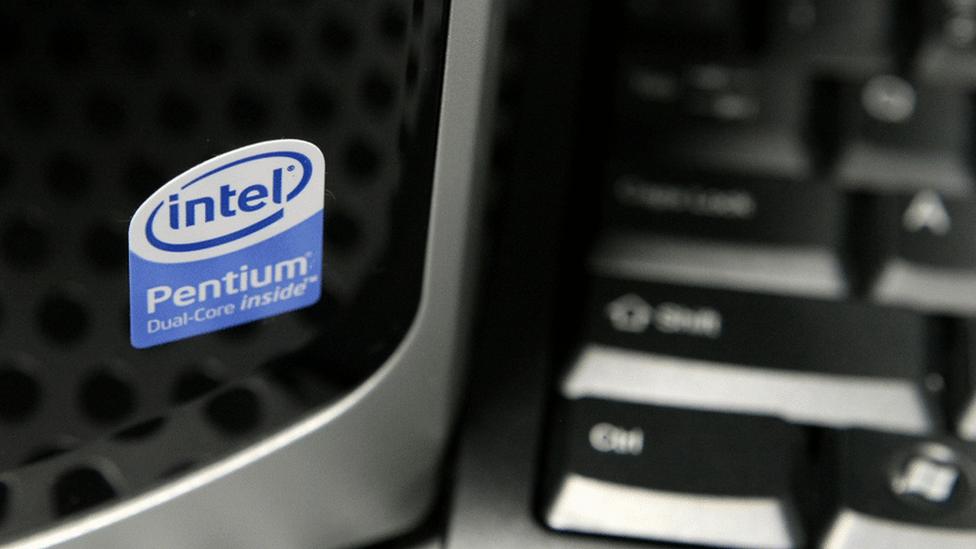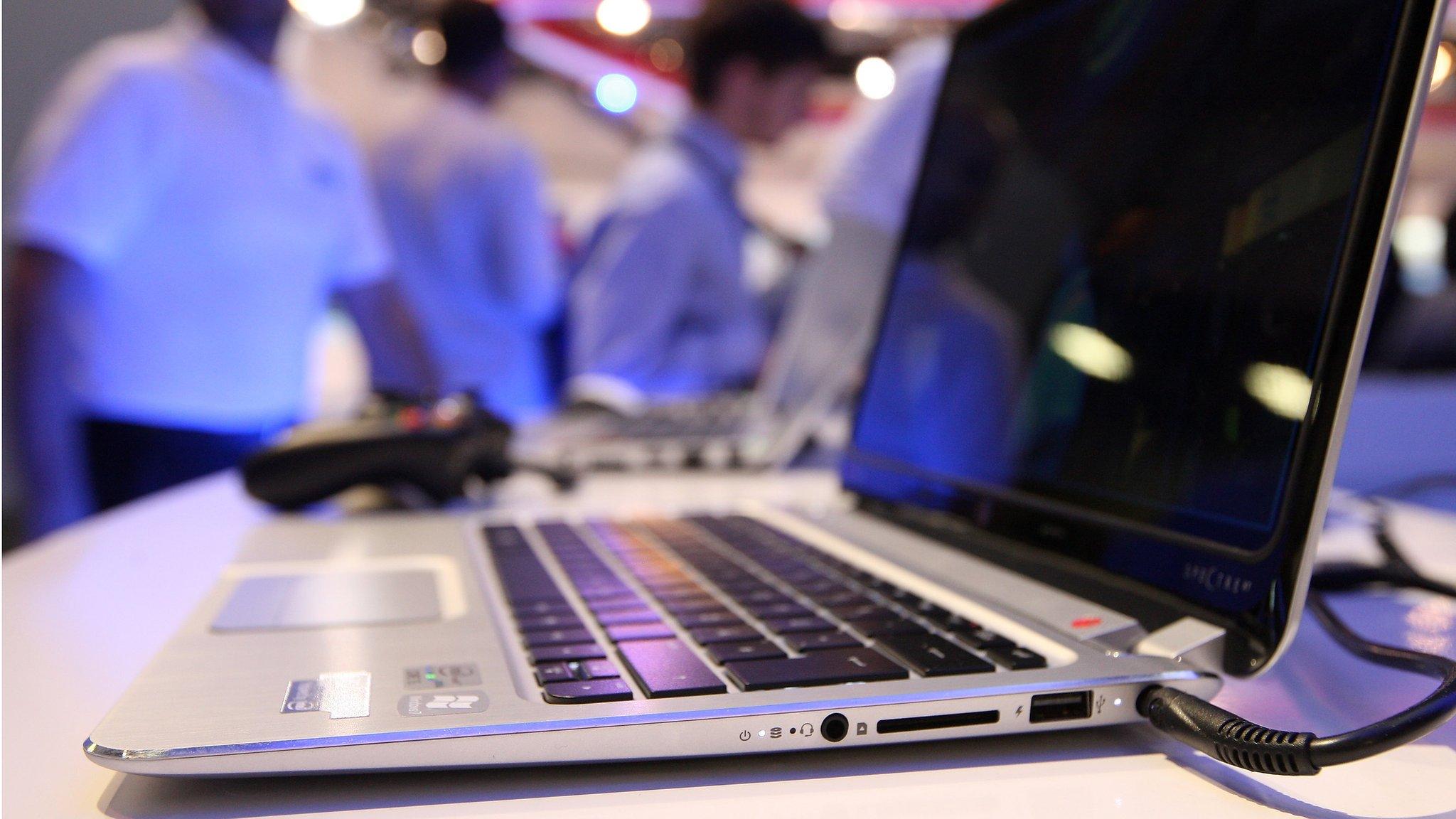Meltdown fix can make some machines slower - Intel
- Published

Intel said at the CES technology conference that it would make all flawed chip safe "within a week"
Intel has admitted that patches to fix the Spectre and Meltdown chip flaws could slow machines "in some cases".
Its own tests suggested performance slowdown could range from 2% to 14%.
It said the impact of the patch, designed to prevent the bug accessing potentially sensitive data, should not be significant for "average computer users".
But gaming platforms and others relying on cloud services do appear to have been feeling the effect of the updates.
"Based on our most recent PC benchmarking, we continue to expect that the performance impact should not be significant for average computer users," Intel said in a statement.
"Eighth Generation Core platforms with solid-state storage will see a performance impact of 6% or less.
"This means the typical home and business PC user should not see significant slowdowns in common tasks such as reading email, writing a document or accessing digital photos."
Vulnerable to hackers
Meltdown and Spectre have been discovered in computer chips in billions of computers, smartphone and tablets across the world.
If they are not fixed, the vulnerability could be used by hackers to access private information.
While Meltdown affects Intel-only processors, Spectre also affects rivals AMD and ARM.
Epic Games, publisher of online video game Fortnite, has been one of the first companies to blame the fix for "login issues" and "service instability".
"All of our cloud services are affected by updates required to mitigate the Meltdown vulnerability," it said in an online statement, external.
The patch for the vulnerable processors requires intervention on a feature that is directly intended to boost chip performance.
Software 'taking strain'
"Operating systems and software are now having to do work that the chip previously performed at very high speed," said independent security analyst Graham Cluley.
"Because the chips can no longer be trusted to perform one of the critical jobs [for which] they were being relied upon, software is taking the strain and inevitably that means that things will take longer."
He added: "The truth is that most of the time most people are not using the full potential of their computer. If they're writing emails or surfing the web they're barely straining their PC's power at all, and so any slowdown is likely to be imperceptible.
"Things may change, however, if you're doing something more intensive with your computer - like performing a large number of complex calculations, or processing large amounts of data."
Intel is facing a growing number of lawsuits, including claims from groups of consumers alleging that it misled consumers by failing to disclose the security hole and demands for compensation based on the potential slower performance of machines that have been patched.
- Published9 January 2018

- Published5 January 2018

- Published4 January 2018

- Published4 January 2018
